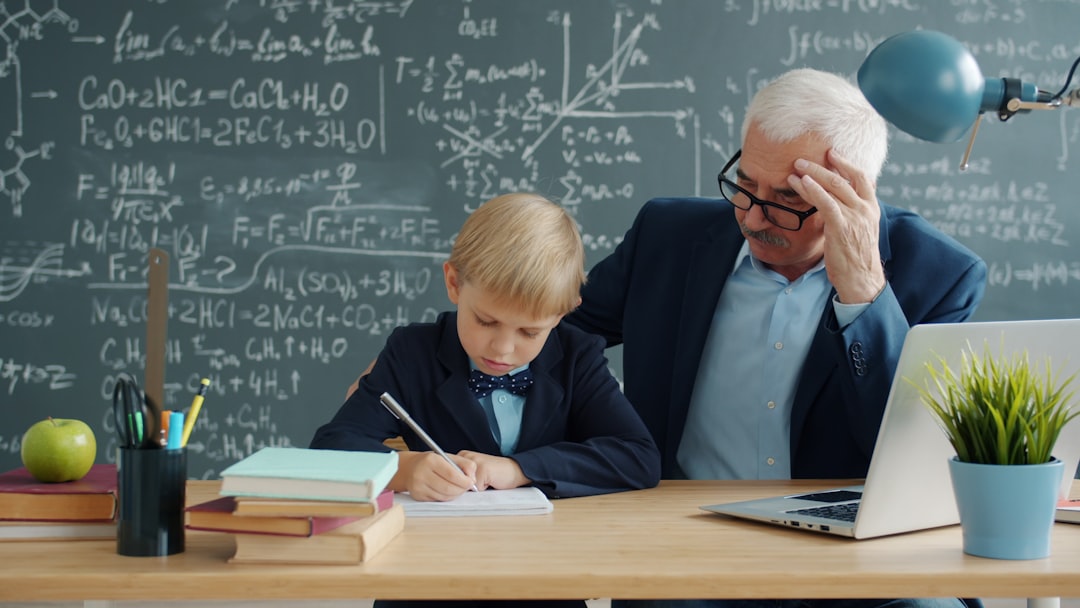As you step into the world of education today, you cannot help but notice the profound changes brought about by technology. Artificial Intelligence (AI) has emerged as a transformative force, reshaping how knowledge is imparted and acquired. The integration of AI into educational settings is not merely a trend; it represents a significant shift in pedagogical approaches and learning methodologies.
You may find yourself wondering how this technology will influence your learning experience and the role of educators in the classroom. AI’s capabilities extend far beyond simple automation; they encompass personalized learning experiences, data analysis, and even administrative tasks. As you navigate through this article, you will explore the multifaceted relationship between AI and education, examining both the opportunities and challenges that arise from this technological evolution.
Understanding this dynamic is crucial for anyone involved in education, whether as a student, teacher, or administrator.
Key Takeaways
- AI in education is revolutionizing the way students learn and teachers teach, offering personalized learning experiences and innovative tools.
- Traditional education heavily relies on teachers for knowledge dissemination, classroom management, and student support.
- The rise of AI in education is transforming the way students access information, learn, and interact with educational content.
- AI has the potential to enhance the role of teachers by providing valuable insights, automating administrative tasks, and personalizing learning experiences.
- Advantages of AI in education include personalized learning, efficient administrative tasks, improved student engagement, and access to a wide range of educational resources.
The Role of Teachers in Traditional Education
In traditional educational settings, teachers have long been viewed as the cornerstone of the learning process. They are not just providers of knowledge; they are mentors, facilitators, and guides who shape the intellectual and emotional development of their students. You may recall your own experiences in the classroom, where a teacher’s encouragement or guidance made a significant difference in your academic journey.
Their ability to connect with students on a personal level fosters an environment conducive to learning. Teachers also play a critical role in assessing student performance and adapting their teaching methods to meet diverse learning needs. They create lesson plans, engage students in discussions, and provide feedback that helps you grow academically.
However, the demands placed on teachers can be overwhelming, often leading to burnout and stress. As you consider the evolving landscape of education, it becomes essential to reflect on how AI might alter this traditional role.
The Rise of AI in Education

The rise of AI in education has been nothing short of remarkable. With advancements in machine learning and data analytics, educational institutions are beginning to harness AI’s potential to enhance teaching and learning experiences. You may have encountered AI-driven tools that offer personalized learning paths, adaptive assessments, and even virtual tutoring.
These innovations aim to cater to individual learning styles and paces, making education more accessible than ever before. Moreover, AI can analyze vast amounts of data to identify trends and patterns in student performance. This capability allows educators to make informed decisions about curriculum design and instructional strategies.
As you delve deeper into this topic, you will discover how AI is not just a supplementary tool but a powerful ally in addressing some of the longstanding challenges faced by educators and students alike.
The Impact of AI on the Role of Teachers
| Metrics | Impact |
|---|---|
| Student Engagement | AI can personalize learning experiences, increasing student engagement. |
| Administrative Tasks | AI can automate administrative tasks, allowing teachers to focus on teaching. |
| Feedback and Assessment | AI can provide instant feedback and assist in grading, saving time for teachers. |
| Professional Development | AI can provide resources and tools for teacher professional development. |
| Individualized Learning | AI can help create individualized learning plans for students with different needs. |
As AI continues to permeate educational environments, its impact on the role of teachers is becoming increasingly evident. While some may fear that AI could replace educators, it is more accurate to view it as a tool that can enhance their effectiveness. You might find that AI can take over routine tasks such as grading assignments or managing administrative duties, freeing up teachers to focus on what they do best: inspiring and engaging students.
However, this shift also requires teachers to adapt to new technologies and methodologies. You may need to embrace a more collaborative approach, working alongside AI systems to create enriched learning experiences. This partnership can lead to a more dynamic classroom environment where teachers can leverage AI insights to tailor their instruction and provide targeted support to students who need it most.
Advantages of AI in Education
The advantages of integrating AI into education are numerous and compelling. One of the most significant benefits is the ability to provide personalized learning experiences tailored to individual student needs.
Additionally, AI can enhance accessibility for students with disabilities by offering customized resources and support systems. For instance, speech recognition software can assist those with writing difficulties, while predictive text can help streamline communication for students with language barriers. These advancements not only promote inclusivity but also empower all learners to reach their full potential.
Disadvantages of AI in Education

Despite its many advantages, the integration of AI in education is not without its drawbacks. One significant concern is the potential for data privacy issues. As educational institutions collect vast amounts of data on student performance and behavior, you may worry about how this information is stored and used.
Ensuring that student data remains secure and confidential is paramount in maintaining trust between educators and learners. Moreover, there is the risk of over-reliance on technology at the expense of critical thinking and interpersonal skills. While AI can provide valuable insights and support, it cannot replace the nuanced understanding that comes from human interaction.
As you consider these challenges, it becomes clear that a balanced approach is necessary to harness the benefits of AI while mitigating its potential downsides.
The Future of Education with AI
Looking ahead, the future of education with AI appears both exciting and uncertain. You may envision classrooms where AI-driven tools work seamlessly alongside teachers to create immersive learning experiences. Virtual reality simulations could transport you to historical events or scientific phenomena, while intelligent tutoring systems provide real-time feedback tailored to your unique learning style.
However, this future also raises questions about equity and access. As educational institutions adopt AI technologies, disparities may emerge between those who have access to advanced tools and those who do not. It will be essential for policymakers and educators to work together to ensure that all students benefit from these innovations, regardless of their socioeconomic background.
The Potential End of Teachers in Education
The notion that AI could lead to the end of teachers in education is a contentious topic that sparks debate among educators, policymakers, and technologists alike.
As you reflect on this idea, consider how the role of teachers may evolve rather than disappear.
Instead of being replaced by technology, educators might become facilitators who guide students through complex problem-solving processes while leveraging AI tools for enhanced learning outcomes. This evolution could lead to a more collaborative educational environment where both humans and machines contribute their strengths.
The Importance of Human Interaction in Education
Amidst the rise of AI in education, the importance of human interaction cannot be overstated. You may recall moments in your educational journey when a teacher’s encouragement or empathy made all the difference in your motivation and engagement. These human connections foster a sense of belonging and community that technology alone cannot provide.
Furthermore, social-emotional learning plays a vital role in education, helping students develop skills such as empathy, resilience, and teamwork. While AI can assist with academic content delivery, it lacks the emotional intelligence necessary for nurturing these essential life skills. As you consider the future landscape of education, it becomes clear that human interaction will remain a cornerstone of effective teaching and learning.
The Ethical Considerations of AI in Education
As with any technological advancement, ethical considerations surrounding AI in education must be addressed. You may find yourself pondering questions about fairness, bias, and accountability in AI algorithms used for educational purposes. If these systems are not designed with inclusivity in mind, they risk perpetuating existing inequalities within the educational landscape.
Moreover, transparency is crucial when it comes to how AI systems make decisions regarding student assessments or recommendations for interventions. As an informed participant in this evolving field, you should advocate for ethical standards that prioritize student welfare and ensure that technology serves as a tool for empowerment rather than exclusion.
Finding a Balance: Integrating AI and Teachers in Education
Ultimately, finding a balance between integrating AI and maintaining the essential role of teachers will be key to shaping the future of education. You may envision a scenario where educators harness AI’s capabilities to enhance their teaching while preserving the human elements that make learning meaningful. This collaborative approach could lead to innovative pedagogical practices that empower both students and teachers alike.
As you navigate this complex landscape, consider how you can contribute to fostering an educational environment where technology complements rather than replaces human interaction. By advocating for thoughtful integration of AI tools alongside dedicated educators, you can help create a future where all learners thrive—one that honors both innovation and humanity in education.
The rapid advancement of artificial intelligence has sparked a heated debate about its potential to replace human jobs, including those in education. As AI technologies become more sophisticated, there is growing concern that they might take over roles traditionally held by teachers. This topic is explored in depth in a related article on the potential impact of AI on the job market, which you can read here. The article discusses how AI could transform educational environments, potentially leading to a future where teachers are supplemented or even replaced by intelligent machines, and what this means for the future of education.
FAQs
What is AI?
AI stands for artificial intelligence, which refers to the simulation of human intelligence in machines that are programmed to think and act like humans.
How is AI impacting the teaching profession?
AI is impacting the teaching profession by automating certain tasks such as grading, lesson planning, and personalized learning. This has led to concerns about the potential for AI to replace human teachers in the future.
Is AI currently replacing teachers in the classroom?
While AI is being used to assist teachers with certain tasks, such as grading and lesson planning, it is not currently replacing teachers in the classroom. Human teachers still play a crucial role in providing personalized instruction and support to students.
What are the potential benefits of AI in education?
AI has the potential to improve personalized learning, provide real-time feedback to students, and free up teachers’ time for more individualized instruction. It can also help identify areas where students may need additional support.
What are the concerns about AI replacing teachers?
Some concerns about AI replacing teachers include the loss of human connection and empathy in the classroom, the potential for job displacement among educators, and the ethical implications of relying solely on AI for education.
How can teachers adapt to the use of AI in education?
Teachers can adapt to the use of AI in education by embracing technology as a tool to enhance their teaching practices, staying informed about AI developments in education, and continuing to prioritize the human connection and personalized support they provide to students.
